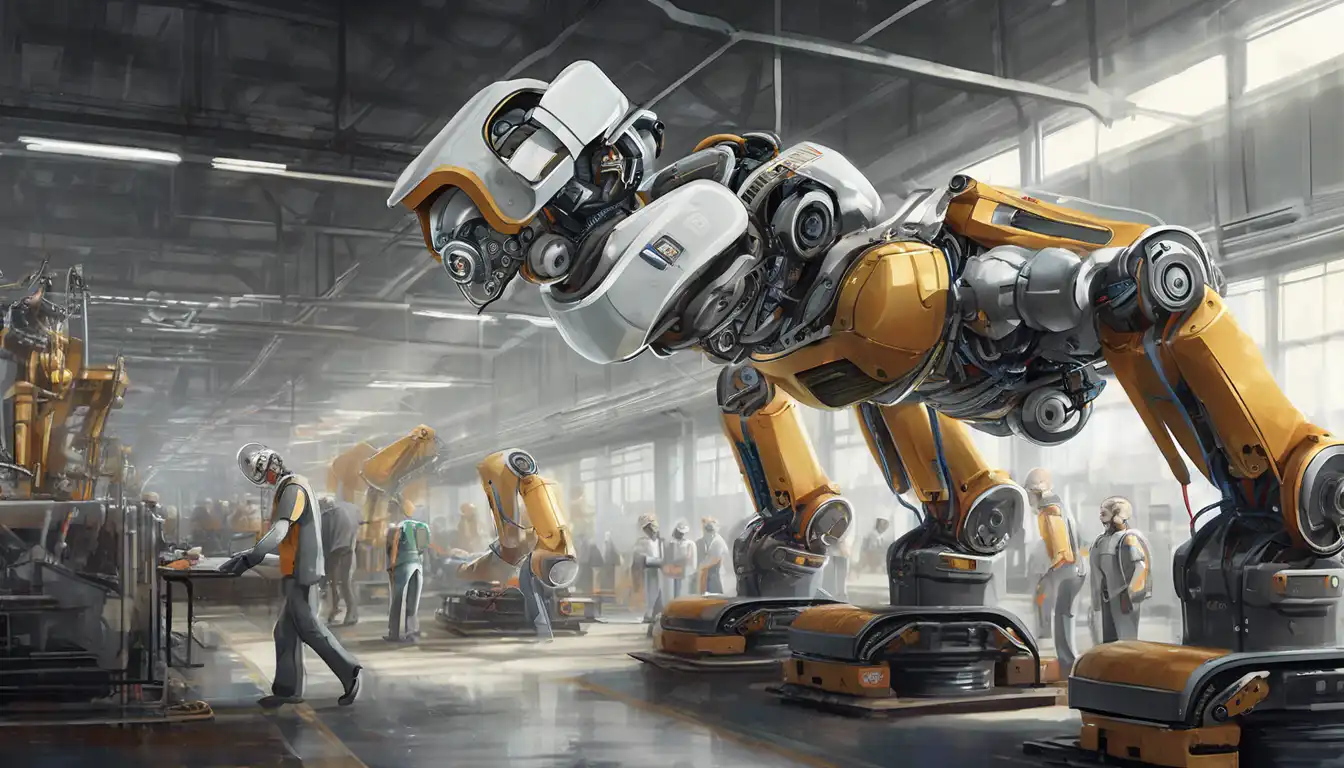The Revolutionary Impact of Robotics on Modern Manufacturing
In the ever-evolving landscape of manufacturing, robotics has emerged as a game-changer, revolutionizing how products are designed, produced, and delivered. This transformation is not just about automating repetitive tasks but redefining efficiency, precision, and scalability in manufacturing processes.
Enhancing Efficiency and Productivity
Robotics in manufacturing has significantly boosted efficiency and productivity. Automated robots can work tirelessly around the clock, reducing production times and increasing output. Unlike human workers, robots do not require breaks, sleep, or vacations, ensuring continuous production lines and meeting tight deadlines with ease.
Improving Precision and Quality
One of the most notable benefits of robotics is the unparalleled precision they bring to manufacturing. Robots are programmed to perform tasks with exact measurements and specifications, minimizing errors and enhancing the overall quality of products. This level of precision is crucial in industries where even the slightest deviation can lead to significant issues, such as in aerospace or medical device manufacturing.
Reducing Costs and Waste
By integrating robotics into manufacturing, companies can significantly reduce operational costs and material waste. Robots optimize the use of materials, ensuring that every piece is utilized efficiently, thereby reducing waste. Additionally, the initial investment in robotics technology is offset by the long-term savings in labor costs and increased production rates.
Scalability and Flexibility
Robotics offers unmatched scalability and flexibility in manufacturing. Robots can be reprogrammed and adapted to perform a variety of tasks, making it easier for manufacturers to switch between product lines or customize products without significant downtime or retooling costs. This adaptability is essential in today's fast-paced market, where consumer demands and trends change rapidly.
Challenges and Considerations
Despite the numerous advantages, the integration of robotics into manufacturing is not without challenges. The initial cost of robotics technology can be prohibitive for small and medium-sized enterprises (SMEs). Additionally, there is a growing need for skilled workers who can program, maintain, and repair these sophisticated machines. Companies must also consider the ethical implications of replacing human jobs with robots and strive to find a balance that benefits both the business and its employees.
The Future of Robotics in Manufacturing
The future of robotics in manufacturing looks promising, with advancements in artificial intelligence (AI) and machine learning paving the way for even smarter and more autonomous robots. These technologies will enable robots to make decisions, learn from their experiences, and perform complex tasks with minimal human intervention. As robotics technology continues to evolve, its impact on manufacturing will only grow, leading to more innovative, efficient, and sustainable production methods.
In conclusion, robotics is transforming the manufacturing industry in profound ways, offering benefits that include increased efficiency, improved quality, cost reduction, and enhanced flexibility. While challenges remain, the potential of robotics to revolutionize manufacturing is undeniable. As we look to the future, it is clear that robotics will play a pivotal role in shaping the next generation of manufacturing processes.
